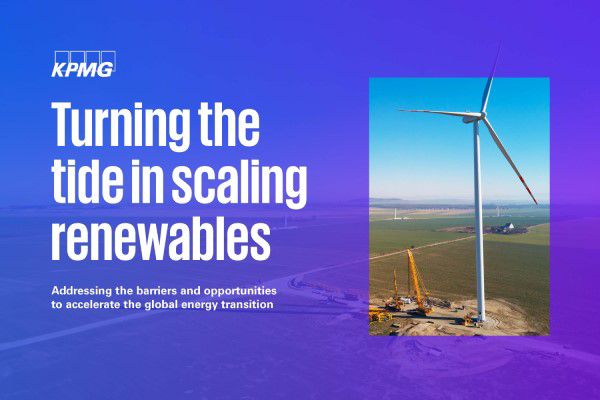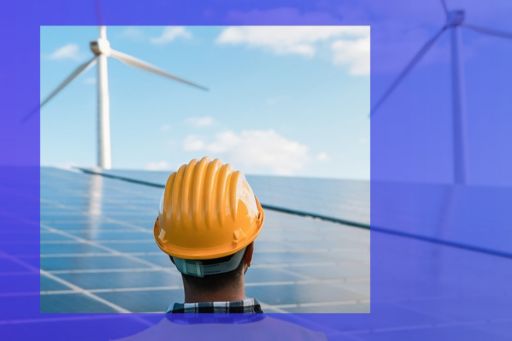The renewable energy industry has experienced impressive growth over the past decade. In 2022, renewable energy deployments grew by double digits worldwide.1 However, only 14 percent of all energy use currently comes from renewable sources.2
Renewable energy is estimated to make up 77% of the world's primary energy supply by 2050.3 To achieve this target, the deployment of renewable energy must triple from 2022 levels by 2030, which amounts to an annual addition of 1,200 gigawatts.4
What are the prospects for the global renewable energy industry to bridge the gap and deliver the desired speed and scale of growth by 2050?
As it stands, renewable energy developers, investors, utilities, and other stakeholders are currently facing too many barriers to reach this level of growth. Over 84% of industry executives reported substantial delays and, in some cases, even project abandonment due to current market challenges.5
Bridging this gap is not a one-size-fits-all solution. To accelerate renewable energy deployment, the industry must confront and overcome the obstacles that stand in its way.
That is the aim of Turning the tide in scaling renewables. In this report, the KPMG global organization and renewable energy specialists identify ten key barriers hindering renewable energy scaling and present innovative recommendations. The report offers real-world examples of organizations overcoming these barriers and succeeding. It also provides insight into increased renewable energy investment opportunities and the importance of collaboration and partnership in delivering successful renewable energy projects.
Explore the barriers to scaling renewable energy
Webcast overview
What are the prospects for the global renewable energy industry to bridge the gap and deliver the desired speed and scale of growth by 2050? In the face of mounting barriers, how can renewable energy stakeholders—from developers to policymakers—innovate to accelerate the pace of sustainable energy solutions? With over 84% of renewable executives reporting project delays or cancelations, what lessons can we draw from those who have triumphed over these challenges to reimagine our approach to deployment?1 As investment flows are crucial, what are the roles and responsibilities of financial institutions in overcoming the funding challenges for renewable energy projects?
During this session, Anish De, Global Head of Energy, Natural Resourcesc and Chemicals, KPMG International and Mike Hayes, Climate Change and Decarbonization Leader, Global Head of Renewable Energy, KPMG International along with Simon Virley, Partner and UK Head of Energy, KPMG in the UK provided insights on the challenges to scaling renewable energy, supported by new research from the KPMG International report, Turning the tide in scaling renewables. They also discussed innovative pathways to scale renewable energy in a manner that honors a collective commitment to a just and sustainable future.
Following the presentation there was a panel of industry professionals who shared their views on the latest trends in this area.
Upcoming events
Join KPMG International at upcoming events related to the scaling of renewable energy.
5 December 2023: Turning the Tide in Scaling Renewables at COP28
For more information and to register, click here
Related content
Throughout this website, “we”, “KPMG”, “us” and “our” refer to the network of independent member firms operating under the KPMG name and affiliated with KPMG International or to one or more of these firms or to KPMG International.
1 Energy Institute in partnership with KPMG and Kearney. “2023 Statistical Review of World Energy.” 2023.
2 Energy Institute in partnership with KPMG and Kearney. “2023 Statistical Review of World Energy.” 2023.
3 International Renewable Energy Agency. “World Energy Transitions Outlook 2023.” 2023
4 International Energy Agency. “Renewable Energy Market Update: Outlook for 2023 and 2024.” 2023.
5 KPMG International. ‘Turning the tide in scaling renewables.’ 2023.




